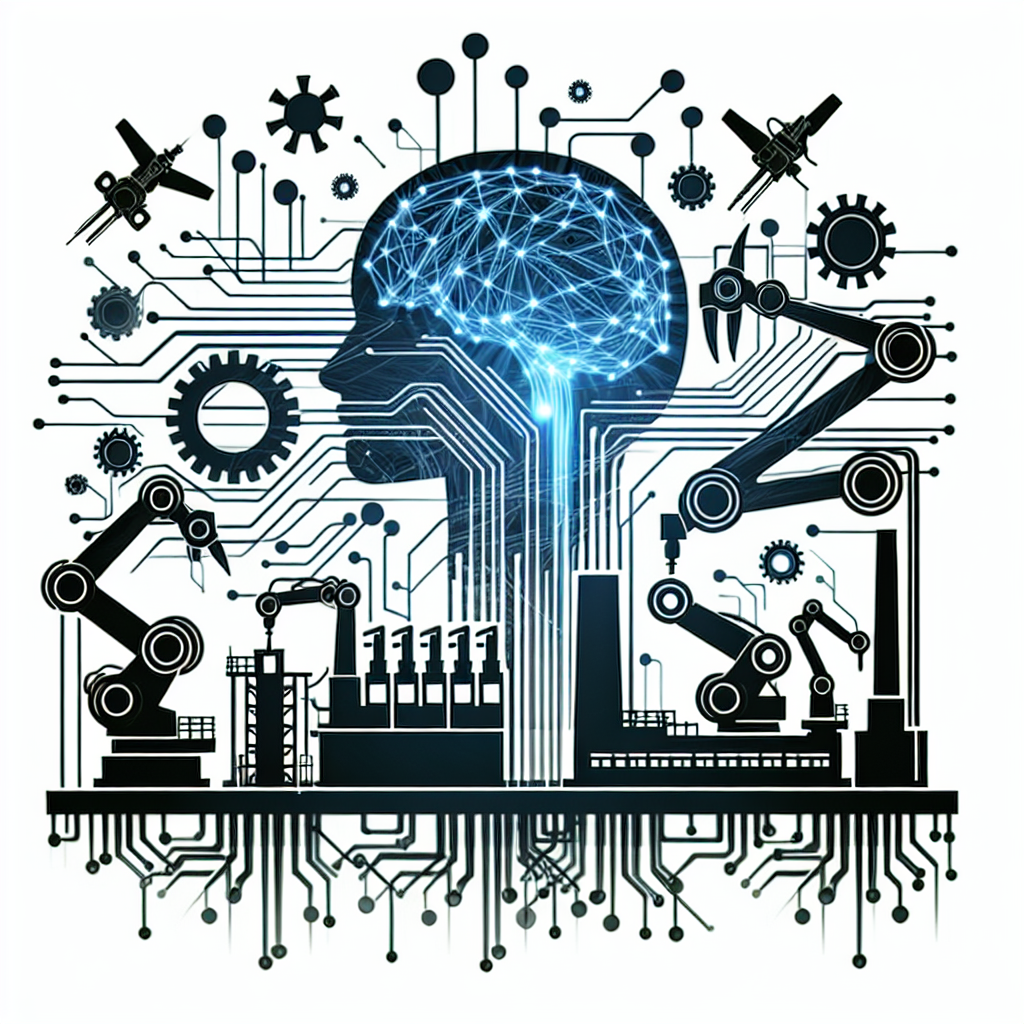Artificial intelligence (AI) and machine learning have the potential to revolutionize the manufacturing industry by improving efficiency, productivity, and quality. However, implementing these technologies in manufacturing comes with its own set of challenges. In this article, we will explore some of the key challenges of implementing AI and machine learning in manufacturing and how companies can overcome them.
One of the main challenges of implementing AI and machine learning in manufacturing is the lack of skilled workforce. Many manufacturing companies do not have employees with the necessary skills to develop and implement AI and machine learning solutions. This can hinder the adoption of these technologies and limit the potential benefits they can bring to the industry.
Another challenge is the cost of implementing AI and machine learning technologies. Developing and deploying AI and machine learning solutions can be expensive, especially for small and medium-sized manufacturing companies. These companies may not have the financial resources to invest in these technologies, which can put them at a competitive disadvantage compared to larger companies that can afford to invest in AI and machine learning.
Data quality and availability are also major challenges when implementing AI and machine learning in manufacturing. AI and machine learning algorithms rely on large amounts of data to make accurate predictions and decisions. However, many manufacturing companies struggle with data quality issues, such as incomplete or inaccurate data, which can affect the performance of AI and machine learning systems.
Security and privacy concerns are another challenge when implementing AI and machine learning in manufacturing. Manufacturing companies deal with sensitive data, such as intellectual property and customer information, which needs to be protected from cyber threats. Implementing AI and machine learning technologies can increase the risk of data breaches and cyber attacks, which can have serious consequences for a company’s reputation and bottom line.
Integration with existing systems and processes is another challenge when implementing AI and machine learning in manufacturing. Many manufacturing companies have legacy systems that were not designed to work with AI and machine learning technologies. Integrating these technologies with existing systems and processes can be complex and time-consuming, requiring significant changes to the company’s IT infrastructure.
Despite these challenges, many manufacturing companies are already reaping the benefits of AI and machine learning. These technologies can improve production efficiency, reduce downtime, and optimize supply chain management. Companies that successfully implement AI and machine learning in manufacturing can gain a competitive advantage and position themselves for future growth.
To overcome the challenges of implementing AI and machine learning in manufacturing, companies can take several steps:
1. Invest in training and upskilling employees to develop the necessary skills to work with AI and machine learning technologies.
2. Partner with external experts and consultants who have experience in implementing AI and machine learning solutions in manufacturing.
3. Develop a clear strategy and roadmap for implementing AI and machine learning technologies, identifying key use cases and goals for the project.
4. Ensure data quality and availability by implementing data management best practices and investing in data analytics tools.
5. Prioritize cybersecurity and data privacy by implementing robust security measures and compliance protocols.
6. Start small and scale gradually, focusing on pilot projects and proof of concepts before rolling out AI and machine learning technologies across the organization.
By addressing these challenges and following best practices, manufacturing companies can successfully implement AI and machine learning technologies to drive innovation and growth in the industry.
FAQs:
Q: What are some examples of AI and machine learning applications in manufacturing?
A: Some examples of AI and machine learning applications in manufacturing include predictive maintenance, quality control, demand forecasting, and supply chain optimization.
Q: How can AI and machine learning improve production efficiency in manufacturing?
A: AI and machine learning can improve production efficiency by optimizing production schedules, identifying bottlenecks in the production process, and predicting equipment failures before they occur.
Q: What are the benefits of implementing AI and machine learning in manufacturing?
A: The benefits of implementing AI and machine learning in manufacturing include improved efficiency, reduced downtime, better quality control, and optimized supply chain management.
Q: How can manufacturing companies overcome the lack of skilled workforce when implementing AI and machine learning?
A: Manufacturing companies can overcome the lack of skilled workforce by investing in training and upskilling employees, partnering with external experts, and hiring new talent with the necessary skills.
Q: What are some best practices for integrating AI and machine learning with existing systems and processes in manufacturing?
A: Some best practices for integrating AI and machine learning with existing systems and processes in manufacturing include developing a clear strategy and roadmap, starting small and scaling gradually, and prioritizing data quality and security.

